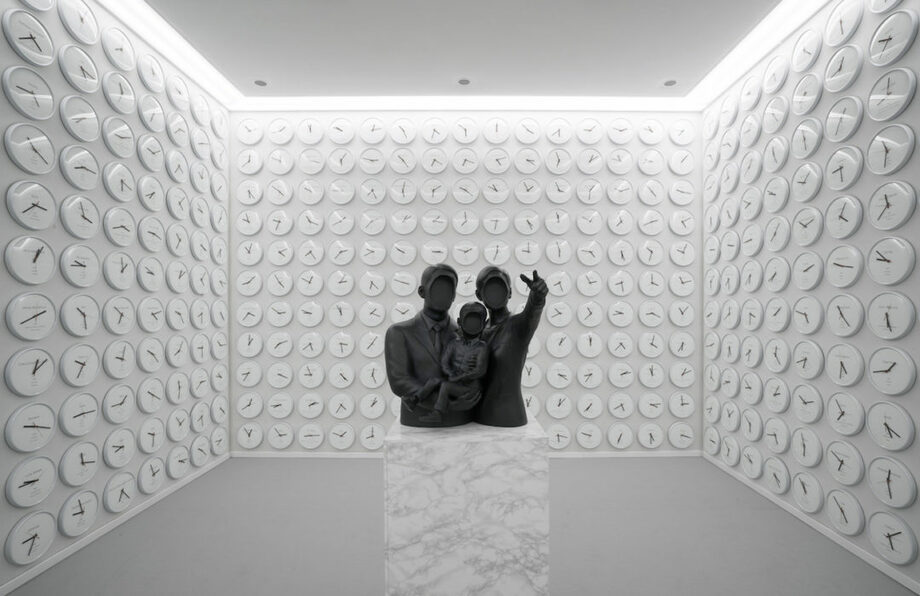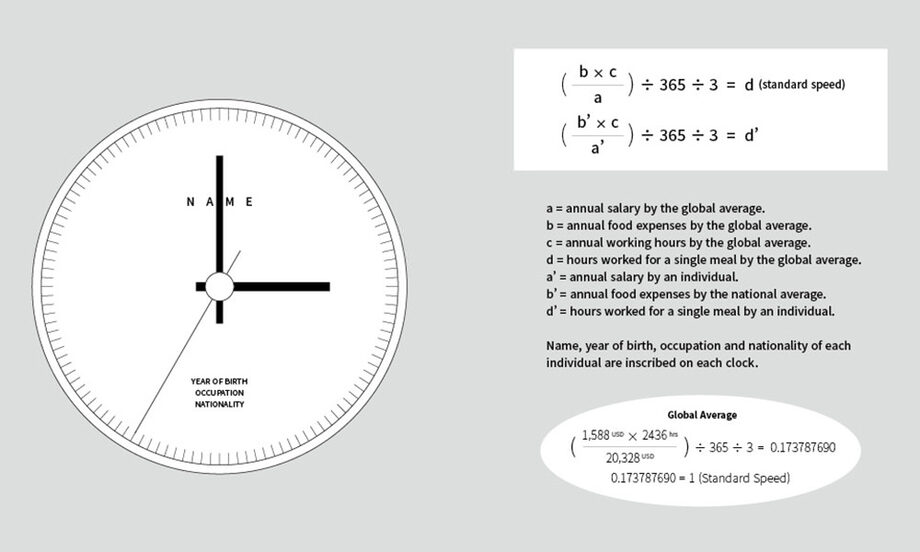Representing Korea at the Venice Biennale (*Note: Original text mentioned 2024, but context suggests 2017 or earlier based on the image source - keeping original mention for consistency with source material*), Lee Wan, in collaboration with Choi Cody, presented the exhibition 'Counterbalance: The Stone And The Mountain'. Commissioned by the Korean Arts Commission and curated by Lee Daehyung (Artistic Director, Hyundai Motor Group), the exhibition delves into the complexities and conflicts perceived within modern Korean identity.

Installation view, Korean Pavilion, Venice Biennale.
'Proper Time': A Reflection on Labor and Value
Lee Wan's central installation, 'Proper Time', immediately confronts the viewer with walls adorned by hundreds of identical clocks. However, each clock bears a unique inscription: a name, birth year, profession, and country. This multitude evokes contemplation on fate, the relentless passage of time, and individual existence within global systems.
Through 'Proper Time', Lee subtly yet powerfully suggests our collective entanglement in overarching global economic structures and labor conditions. Each clock represents an individual whose daily labor required to afford a basic meal has been meticulously calculated by the artist using a specific formula. The isolation of each clock mirrors the individual's unique circumstances, while their collective assembly highlights the shared reality governed by global economic forces.

Detail from 'Proper Time', showcasing individualized clock faces.
Quantifying Life
The genesis of the project stemmed from a pragmatic question: how many minutes must one work to afford breakfast? Lee Wan embarked on a five-year journey, traveling across numerous countries, interviewing individuals, and applying his mathematical formula to quantify this time based on variables like GDP, cultural norms, profession, and age.
"Meals are universal needs that transcend borders, classes and religions," explains Lee Wan. "I wanted to present the values of breakfast meals under different conditions... and I wanted to quantify the time of each individual effort in terms of Einstein's time theory… And then I asked myself if it is also possible to assess one's life according to these economic norms."
'For a Better Tomorrow': Questioning Progress
Complementing the clocks, the sculpture 'For a Better Tomorrow' occupies the center of the room. Made of plastic and featuring faceless figures, it evokes classic propaganda imagery, questioning the promises of progress inherited from previous generations.
"My parents lived through the days of rebuilding... 'For a better tomorrow', 'Export is the only way out' and 'Today's sweat is the happiness of tomorrow' are slogans of those times," Lee reflects. "Time has passed, and now we live that future. But look at our country today." The work serves as a poignant commentary on the realities of contemporary life versus the idealized futures promised by past economic drives.
Lee Wan's contribution to the Biennale stands as a powerful examination of individuality, economic disparity, and the quantification of human existence in the modern era.